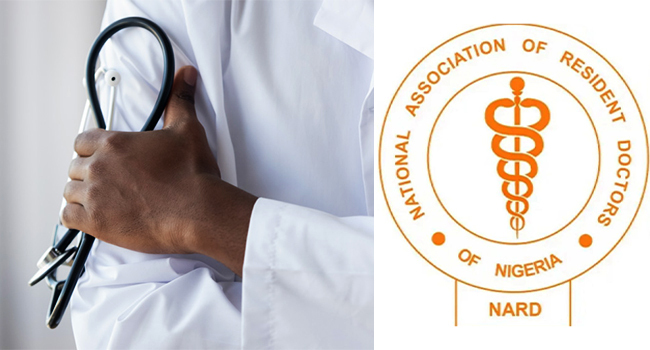The Association of Resident Doctors, Federal Capital Territory Administration (ARD-FCTA), has raised concerns over the alarming and recurring abductions of healthcare workers across Nigeria.
Speaking at a press conference on Monday, ARD-FCTA President, Dr. Rahman Olayinka, urged the government at all levels to address the worsening security situation.
Olayinka’s remarks coincided with the announcement of the association’s 2024 Annual Health Week and Annual General Meeting/Scientific Conference, themed “Safeguarding the Nigerian Healthcare System.”
Olayinka described the abductions as a serious concern, highlighting that insecurity is one of the primary factors driving doctors to seek better opportunities abroad, alongside the persistent issue of inadequate welfare.
“It is no surprise that we are witnessing what is now referred to as the ‘Japa syndrome’ in Nigeria,” Olayinka stated.
“This is because the government has not sufficiently addressed the welfare of healthcare workers.”
Challenging working conditions and the ‘Japa Syndrome’
He further explained, “Why do doctors seek better opportunities abroad? It’s simple: limited working hours, better pay, and access to quality healthcare.”
“Here in Nigeria, however, doctors often work under such harsh conditions that they become ill themselves and cannot afford adequate healthcare.”
“It is shameful that as healthcare professionals, we are unable to access the very healthcare system we work in. These unresolved issues have forced many healthcare workers to leave the country in search of better opportunities.”
Persistent welfare concerns and their impact on healthcare delivery
Olayinka also pointed out that healthcare workers, including members of the National Association of Resident Doctors (NARD), have persistently engaged with the government on issues concerning welfare, including salaries, working conditions, and security.
However, he lamented that these concerns remain largely unresolved.
“The lack of proper equipment, substandard working environments, and poor security in hospitals are key factors driving the migration of healthcare workers,” he explained.
“These challenges significantly impact the delivery of quality healthcare to patients across the country,” he added.
Abduction of medical doctor and its implications
Olayinka also recounted a recent incident involving the abduction of a medical doctor from within a hospital premises.
“We are grateful that the doctor has been released, but we all know the efforts that were required to secure their freedom. If security and welfare cannot be guaranteed in the workplace, what should we expect?” he asked.
Turning to broader healthcare goals, Olayinka emphasized the need for increased investment in Nigeria’s healthcare system, particularly in primary healthcare, to meet the 2030 Universal Health Coverage (UHC) target.
“Doctors in the FCT have been actively contributing to the primary healthcare sector through various outreach programs in areas such as Bwari, Gwarinpa, and Kuje,” he explained.
“These initiatives aim to bring healthcare closer to the people and must continue if we are to meet the UHC target,” he added.
Acknowledging efforts in strengthening healthcare services
Olayinka also expressed appreciation for the efforts of the FCT Health Services and Environment Secretariat, led by Minister Nyesom Wike and Mandate Secretary Dr. Adedolapo Fasawe.
- He acknowledged their significant contributions to strengthening healthcare services in the FCT.
“Some health conditions can be addressed at the primary healthcare level before escalating to general or tertiary hospitals,” he noted.
“Investing in the health system, especially primary healthcare, is crucial for us to meet the 2030 UHC goal,” Olayinka said.
- As part of the Annual Health Week, ARD-FCTA will offer free medical services to the public to support efforts toward achieving universal health coverage.
The event will feature sub-themes such as “The Impact of the Abduction of Medical Doctors on Healthcare Services” and “What Constitutes Medical Negligence and What to Do When Caught in the Web.”
